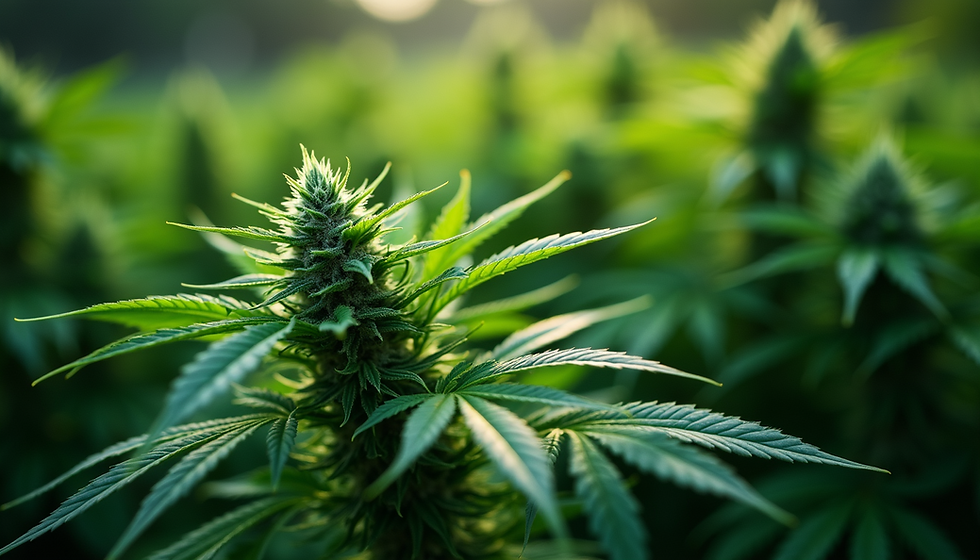The Science of Munchies: Why Does Cannabis Make You Hungry?
- kroncannabistn
- Jun 18, 2024
- 3 min read

One of the most well-known effects of cannabis is its ability to increase appetite, commonly referred to as "the munchies." This intriguing phenomenon has prompted scientific inquiry to understand why the consumption of cannabis often leads to an insatiable hunger. Let's dive into the science behind this peculiar effect, focusing on the role of THC and its interaction with the brain's hunger circuits.
THC and the Brain's Appetite Control
At the heart of the munchies phenomenon is THC, or tetrahydrocannabinol, the main psychoactive compound in cannabis. THC is known for its ability to produce feelings of euphoria and relaxation, but it also plays a significant role in how the brain controls hunger. When THC enters the body, it interacts with the endocannabinoid system, which is involved in regulating a variety of functions, including mood, pain, and yes, appetite.
"THC interacts with receptors in the brain’s olfactory bulb, significantly enhancing the sense of smell and taste. This heightened sensory experience can make the idea of eating much more appealing," explains a recent study highlighted by CNN (source). This interaction may explain why foods can seem irresistibly more flavorful and appealing after using cannabis.
Ghrelin: The Hunger Hormone
Further diving into the biological mechanisms, THC's effect on appetite is also linked to the hormone ghrelin, often called the "hunger hormone." Ghrelin levels increase in the stomach when it's empty, signaling the brain that it's time to seek out food. THC enhances the production and release of ghrelin, thereby stimulating hunger. This explains why even if you've recently eaten, consuming cannabis can make you feel as though you haven't eaten in hours.
A study published on PBS's website notes, "THC prompts a surge of ghrelin, and this surge fools the brain into feeling hungry even when the stomach knows it's full" (source). It's a fascinating interaction that not only triggers the urge to eat but might also affect metabolism and energy use.
Neural Pathways and Reward
Research from psychiatric and neurological studies has shown that THC may activate certain neural pathways in the brain that are associated with pleasure and reward, specifically those linked to food enjoyment. According to a study referenced by Psychiatrist.com, THC activates the brain's reward system, which includes increasing the release of dopamine during food intake, thus making the act of eating more pleasurable and satisfying (source).
This activation can make eating feel exceptionally rewarding and enjoyable, prompting individuals to continue eating beyond normal satiety levels. The National Center for Biotechnology Information further elaborates on how these neural adjustments contribute to a notable increase in appetite and the desire to consume palatable foods (source).
Implications and Considerations
While the munchies can be an amusing and harmless side effect for many cannabis users, it's important for individuals using cannabis for medical purposes, especially those with conditions related to weight, metabolism, or diabetes, to manage their diets and be mindful of their food intake. Understanding the scientific underpinnings of cannabis-induced hunger can help users make informed choices about their consumption and eating habits.
In conclusion, the munchies are more than just a cultural joke—they are a complex biological phenomenon driven by cannabis's interaction with brain chemistry and digestive hormones. As we continue to explore the intricacies of cannabis and its effects, the insights gained will not only demystify the experience but also help users navigate their relationship with food and cannabis more effectively.







Comments